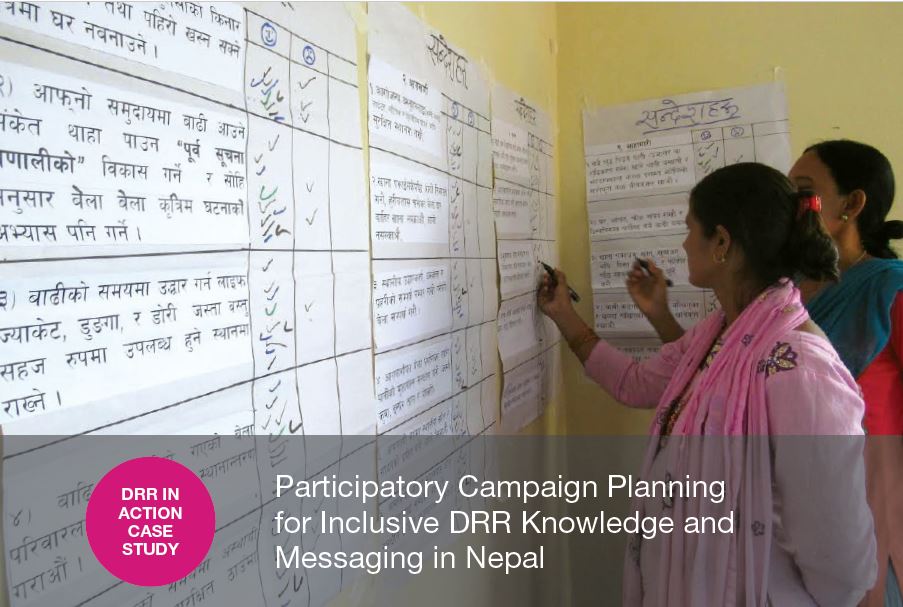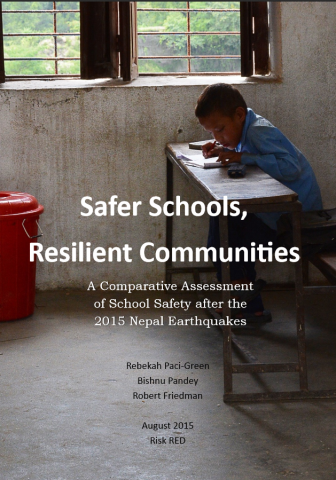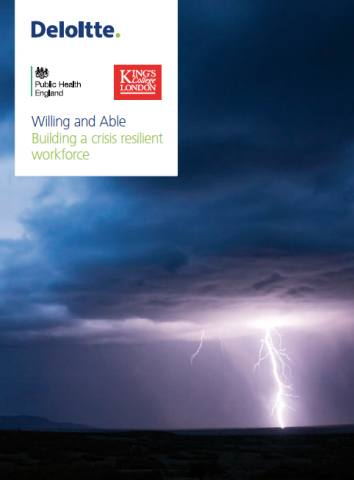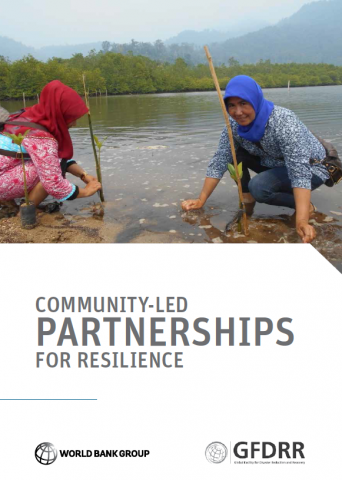Participatory Campaign Planning for Inclusive DRR Knowledge and Messaging in Nepal
The Strengthening Urban Resilience and Engagement (SURE) program developed a Participatory Campaign Planning (PCP) process to improve disaster messaging and increase awareness of disaster risks and mitigation measures among vulnerable groups in Nepal. The project included a series of interactive workshops to determine which messages and means of communicating would most effectively reach each of […]
Participatory Campaign Planning for Inclusive DRR Knowledge and Messaging in Nepal Read More »




